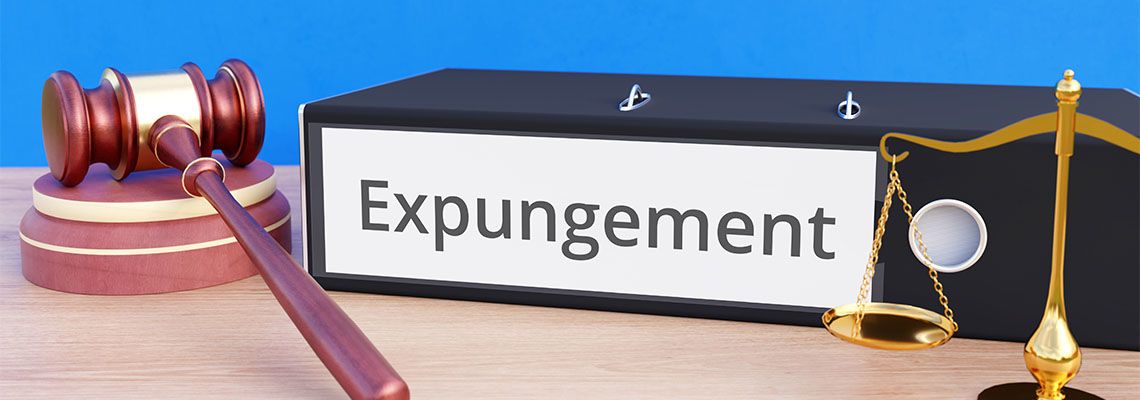
Understanding Expungement in Iowa
In Iowa, expungement refers to the legal process of sealing a criminal record so it is no longer publicly accessible. For example, before expungement, if someone was arrested and charged with a crime, even if they were not ultimately convicted, that arrest would still appear on their criminal record.
This can have negative consequences for individuals seeking employment, housing, or other opportunities. However, once that crime has been expunged, it will no longer appear on the individual's criminal record and they can legally deny its existence.
This process aims to reduce the long-term consequences of a criminal record, which can affect employment, housing, and educational opportunities. However, expungement eligibility and procedures can vary based on the type of crime, the time elapsed since the conviction, and other specific criteria set forth by Iowa law.
Why Would You Want an Expungement?
Now, you might be wondering why someone would want to pursue expungement. Well, having a criminal record can create significant barriers to employment, housing, education, and other opportunities.
By obtaining expungement, you can improve your chances of securing employment and housing, as well as regain your personal and professional reputation. Moreover, expungement can provide a sense of closure and relief, allowing you to focus on building a better future instead of dwelling on past mistakes.
Expungement in Iowa
In my home state of Iowa, expungement is available for certain criminal offenses. Some of these include:
Public intoxication, so long as it is the first offense and does not result in bodily injury or property damage
Disorderly conduct, provided no serious harm was caused
Trespassing, if it was a simple misdemeanor case
Theft in the 5th degree, assuming it's the first offense and the individual has had no other criminal convictions for two years
Certain alcohol-related misdemeanors such as PAULA (Possession of Alcohol Under the Legal Age) offenses
This process allows individuals to have their records sealed or expunged, meaning they will no longer be accessible to the general public. However, it's essential to understand that expungement doesn't completely erase the record; some official bodies may still have access.
The eligibility for expungement and the laws surrounding it are tied to the type of offense and the individual's unique circumstances.
Who's Eligible for Expungement?
Eligibility for expungement in Iowa depends on various factors, including the type of offense committed and the individual's criminal history.
Generally, individuals who have completed their sentence, including probation and parole, and have not committed any new offenses may be eligible. However, certain offenses, such as violent crimes and sex offenses, may not be eligible for expungement.
How Do You Apply for Expungement?
To apply for expungement in Iowa, individuals must follow a set of legal steps which are outlined below:
Review Eligibility: Before applying for expungement, ensure that the offense in question meets the eligibility criteria set out by Iowa law.
Obtain Your Criminal Record: You will need a copy of your criminal record to review the charges you want to expunge. This can usually be done through the Iowa Division of Criminal Investigation.
Complete the Application: Obtain the expungement application form from the Iowa Judicial Branch website or at the courthouse where the conviction occurred.
File the Application: Submit the completed application along with any required documentation and the filing fee to the clerk of court in the county where the charge or conviction occurred.
Notify the Prosecutor: In some cases, you may be required to serve a copy of the application to the county prosecutor.
Attend the Hearing: If a hearing is scheduled, attend and be prepared to argue why your record should be expunged.
Judge's Decision: After reviewing your application and hearing your case (if applicable), the judge will issue a decision.
It’s also advisable to seek an experienced expungement attorney, such as Jay W. Mez, Attorney At Law, to navigate the process efficiently and to ensure the best possible outcome.
The Aftermath of Expungement
Once a record has been expunged in Iowa, it is no longer accessible to the general public. This means that employers, landlords, and the general public will not be able to view the expunged conviction on background checks or public records.
However, certain entities, such as law enforcement agencies and government organizations, may still have access to the expunged record. It's essential to understand the limitations and exceptions of expungement to make informed decisions.
What Happens After Your Record's Been Expunged?
After your record has been expunged in Iowa, you can legally state that you have not been convicted of the expunged offense. This can be beneficial when applying for jobs, housing, or other opportunities that require disclosure of criminal history.
However, expungement does not completely erase the record, and in some cases, you may still need to disclose the expunged conviction to certain entities, like professional licensing boards, or when applying for specific types of jobs.
Can Anyone Find Out About Your Past Conviction?
Once your record has been expunged in Iowa, it becomes significantly more difficult for the general public to find information about your past conviction. Expunged records are not accessible through public records or background checks conducted by employers or landlords. However, certain entities, like law enforcement agencies and government organizations, may still have access to the expunged record.
That's why it's advisable to consult with an attorney to fully understand the limitations and exceptions of expungement. At Jay W. Mez, Attorney At Law, I'm here to help you navigate the expungement process and work toward securing a fresh start.
